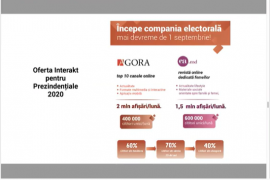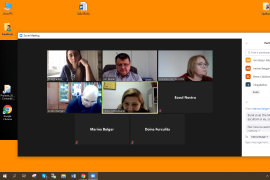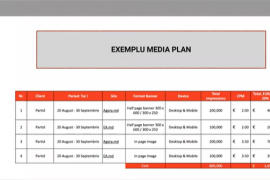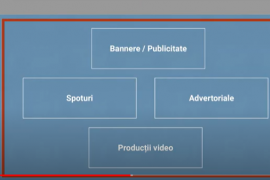back
Between Accomplishing Professional Mission And Challenge Of Earning Money
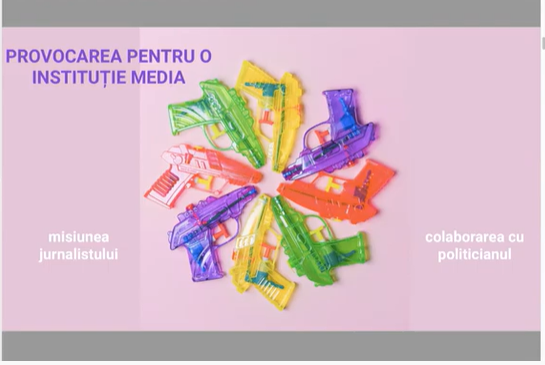
Capture image
Election campaigns have always been an opportunity for media outlets to improve their financial situation. At the same time, newsrooms face a big challenge: how to increase revenues without violating ethics principles. During the webinar "Specifics of Political Offers in Election Campaigns," held at the end of March, the beneficiaries of API Consulting and Assistance Center became acquainted with the experience of other media outlets in this field and received advice on how to develop successful offers and avoid mistakes. The training was attended by media managers and sales agents from a number of independent regional newsrooms.
The workshop facilitator Irina Ghelbur, consultant in media management and advertising at the Consulting and Assistance Center, first referred to the experience of Agora.md in its relations with political parties and various politicians, and the specifics of electoral offers in the media. To avoid ethics issues, the newsroom excluded editorial products, such as the production of journalistic materials, including reports, news, etc. from its electoral offer from the start. Even though its range of services considerably decreased, the media outlet strengthened its credibility with the consumers. “During election campaigns, the sales manager is the one to deal with the electoral offers, while the creative team deals with investigations, analytical materials and informs truthfully and objectively the citizens about what the parties say or do, even if some of them are our advertising clients. We have had situations at Agora when some politicians withdrew their publicity because we published articles critical of them. That is why, it would be good for the payment for the services to be made in advance, and not after the work has been completed,” the expert recommended. She noted that revenues from election advertising were three times lower in the 2020 election campaign than in previous presidential elections, as parties and politicians turned to other types of promotion. "Most important political actors have their own media outlets, to which they pump hard money and do not need the independent media to convey their messages. A lot of money is allocated to social media, where manipulation and defamation takes place more easily than in the traditional media, especially independent ones that follow the professional standards. However, we are ready to collaborate and regularly update the offer, and I recommend you do the same.” As to how the prices for electoral advertising products and services should be set, Irina Ghelbur emphasized that Agora's strategy was simple: prices are double the standard media kit.
Some media managers talked about their own experiences and the difficulties they faced during election campaigns. Andrei Bargan, director of Media TV (Cimișlia), recalled the law forbade TV and radio stations to increase offer prices during election campaigns: “We did this in a previous campaign and we were sanctioned. To avoid sanctions, we have to raise prices a few months before the election campaign, and lower them after the campaign. In addition, parties and politicians are very capricious and often insist on conditions that are unacceptable to us." In her turn, Elena Cobasneanu, director of the newspaper Observatorul de Nord and of the portal Observatorul.md (Soroca), noted that the effort made by her newsroom to earn money in election campaigns did not bring the expected results: "We also noticed a decreasing trend of advertising volume. After studying the national practice, as well as the experience of colleagues from other countries, we added various media products and services to our electoral offer; nevertheless, the interest from politicians significantly decreased. A challenge for us is how to increase prices in low demand conditions."
The full webinar recording is available HERE.
Between August 2020 and March 2021, other 10 thematic webinars were held at the Consulting and Assistance Center for the staff of independent regional media. In March 2021, the services of the Center’s consultants benefited a total of 43 staff from 27 newsrooms, and in the last eight months - 401 media professionals.
The Consulting and Assistance Centre for regional independent media outlets will operate until June 2021, and newsrooms are urged to use the services of consultants whenever needed, by accessing the application on the website Api.md.
The project ”Program of Assistance for Independent Regional Media Outlets” is implemented by the Association of Independent Press Association (API) and funded by the US Embassy in the Republic of Moldova. The opinions expressed within the project belong to the authors of the project and do not necessarily correspond to those of the US Embassy.
